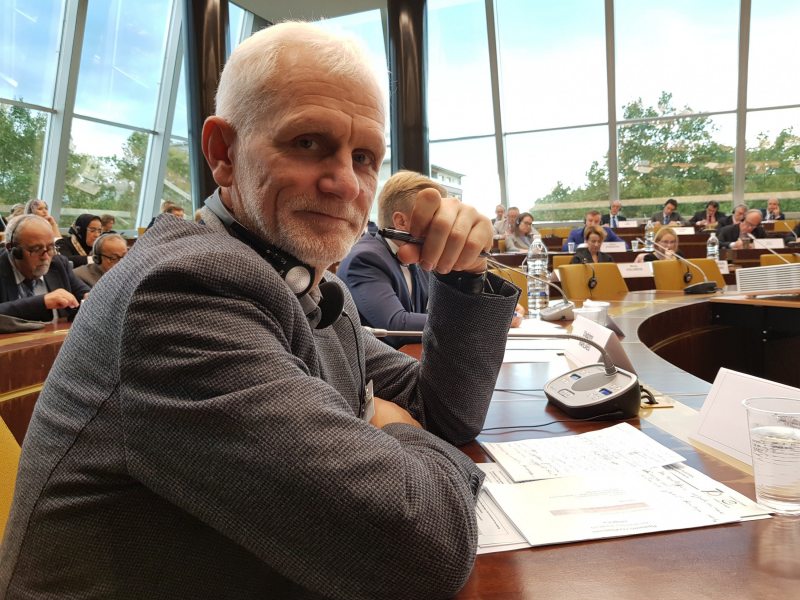PACE holds hearing on Belarus ahead of November 17 elections

The Committee on Political Affairs and Democracy of the Council of Europe’s Parliamentary Assembly has arranged a public hearing on the situation of Belarus ahead of this year’s parliamentary elections scheduled for November 17.
The event was attended by representatives of the Belarusian Parliament, opposition politicians, and civil society activists.
Ales Bialiatski, leader of the Human Rights Center “Viasna”, told about the interim findings of “Human Rights Defenders for Free Elections”, a nation-wide non-partisan observation initiative that deployed its monitors across Belarus to report on every phase of the elections. He stressed that this year’s elections are not marked by any systemic changes as compared to previous votes.
“In 2016, the OSCE ODIHR observation mission issued 32 recommendations to amend the law and improve electoral procedures. However, with the new elections already underway, everything remains exactly as it was. In previous elections, international observers noted that “the composition of election commissions was not pluralistic.” Territorial and district commissions have already been formed, and they have only 2.5% of members of the opposition parties and public associations. At the same time, almost all of the proposed nominees from the five pro-government organizations were included in the commissions (Youth Union, Belarusian Union of War Veterans, Women’s Union, pro-government trade unions and the Belarusian Peace Foundation),” Bialiatski said.
International observers have repeatedly said that Belarus needs “comprehensive reform of the electoral system as part of a broader process of democratization.” However, these recommendations are still nothing but promises, Viasna leader said.
“The electoral changes developed by an ad hoc group perished in President Lukashenka’s desk drawer. Speaking last week, Lukashenka said: “We will conduct this campaign quietly. This is a rehearsal of tomorrow’s campaign, the presidential elections.” It is clear that he sees no point in changing the electoral law as long as it helps him have total control over the election process and to achieve his goal,” Bialiatski said.
Chairman of the Human Rights Center “Viasna” said that polling station election commissions will be formed soon. And there is a high probability that they will be fully controlled by the executive. The great problem is the absence of scrutiny over the early vote, with students and civil servants being forced to vote, as well as lack of transparency of the counting the ballots on voting day.

